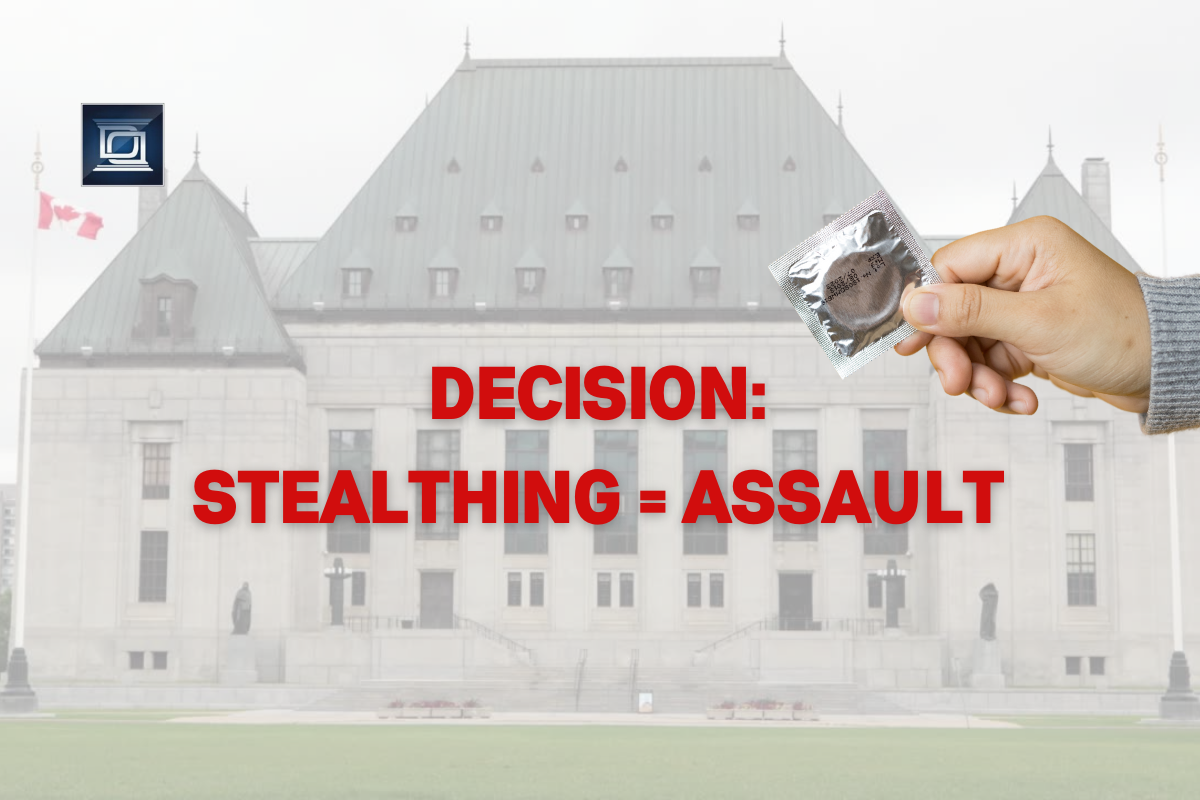CBC News covered a recent decision by the Supreme Court of Canada in regards to “stealthing.”
“Stealthing” refers to the non-consensual removal of, or non-consensual failure to use, a condom during sex.
The Supreme Court has decided that stealthing constitutes sexual assault. This decision has major implications for the future of sexual assault law and criminal law. It also changes the nature of a 2017 case, which prompted this decision.
DDLaw has provided a transcript of CBC News’ interview with senior reporter David Thurton, Supreme Court says not wearing condom against partner’s wishes can lead to sexual assault conviction.
Transcript:
Hannah: The supreme court has just rendered its judgment on something called “stealthing.” That’s the non-consensual removal of a condom during sex.
David Thurton joins me now from Ottawa. Good morning, David. What has the court decided?
David: Well, Hannah, I just want to acknowledge that some of this could be triggering and very difficult, but the Supreme Court has essentially decided that a person who engages in a sexual act with another person and is told to wear a condom, well, they can be convicted of sexual assault if they are told to wear a condom and they don’t wear it.
So the supreme court gave this unanimous decision today. They are saying that a new trial should be ordered for a man who was acquitted of sexual assault back in 2017.
That man engaged in sex with a woman back in 2017. He was told to wear a condom and he didn’t wear a condom throughout, so the Supreme Court was asked to rule on this matter.
They issued a decision saying, not that the man is guilty, but that a new trial will be required in this case, because a lower court made some errors in acquitting this man.
Essentially, they’re saying today, Hannah, that if you’re told to wear a condom during sex, and you don’t wear one, you could be convicted of sexual assault.
So that’s the judgment. It has broad implications, not just for this matter, but of course for the conversation around consent and the law around it as well.
Hannah: And David can you just remind us of the background to this case and how we actually got to this point?
David: Yeah, this case goes back to 2017.
We don’t know the name of the complainant. It’s protected by a publication ban, but we do know the name of the defendant. His name is Ross Mackenzie Kirkpatrick.
He met with a woman he met online. They had sex twice in one night. The first time he did wear a condom. The second time he didn’t wear a condom. The complainant only found out when he ejaculated in her, and she found out that he wasn’t wearing a condom, so police were involved, charges were laid, a trial was held.
He was acquitted of sexual assault. It was appealed to a higher court, NBC. The appeal court said that the lower court made an error and ordered a new trial, but the defendant, Kirkpatrick, appealed that ruling, and that’s what has brought us to the Supreme Court today.
They have basically said, “hey a new trial will be required, the lower court made some errors, because a person can be convicted of sexual assault if they don’t wear a condom and they’re told to wear one.”
Hannah: Okay, David, thank you for the latest. David Thurton in Ottawa
This transcript has been edited to include punctuation and remove filler-words (like “ums” & “uhs”). We’ve also removed misspoken lines to better convey Thurston’s message.
You can watch the original video here or in the embedded player above.





